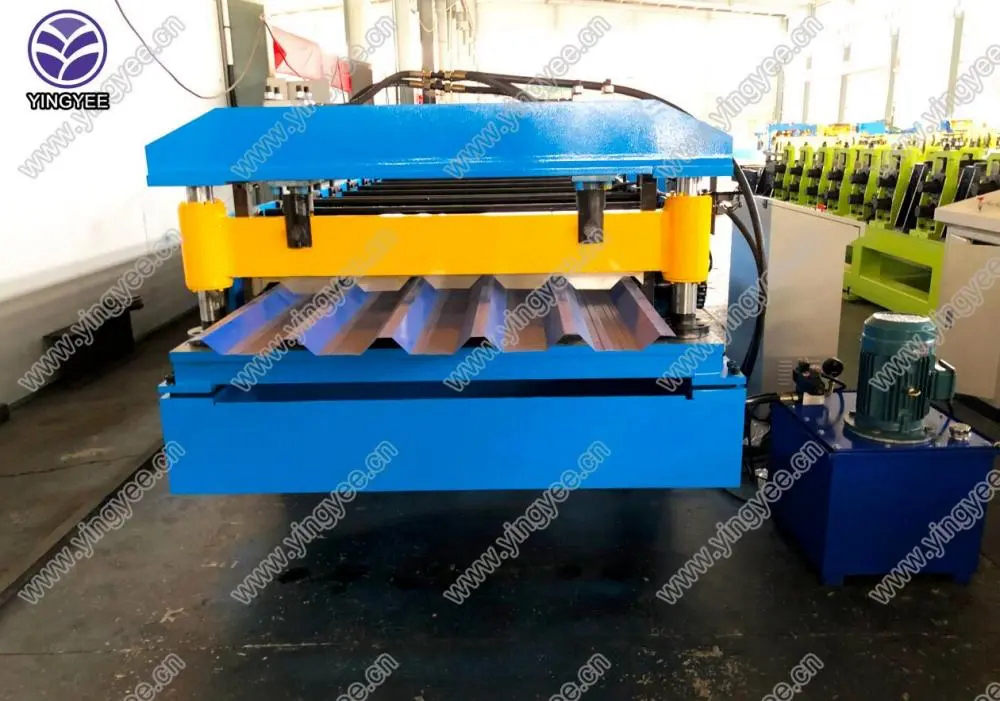
The Importance of IBR Sheet Roll Forming Machines in Modern Construction
In the constantly evolving landscape of modern construction and manufacturing, efficiency and precision are paramount. One of the pioneering technologies that has greatly influenced the production of building materials is the IBR sheet roll forming machine. This innovative machinery allows for the rapid production of IBR (Inverted Box Rib) sheets, which are widely used in roofing and cladding applications. This article delves into the significance of IBR sheet roll forming machines, exploring their functionality, benefits, and impact on the construction industry.
What Are IBR Sheets?
IBR sheets are a type of metal roofing profile that features a distinctive inverted box rib design. This profile offers enhanced strength and durability, making it ideal for various applications, including commercial, industrial, and residential buildings. The unique shape of the IBR sheets allows for excellent water drainage while maintaining a lightweight structure. Additionally, these sheets can be made from various materials, such as galvanized steel, aluminum, and fiberglass, ensuring versatility in design and application.
How IBR Sheet Roll Forming Machines Work
The IBR sheet roll forming machine is designed to convert flat steel sheets into pre-defined shapes through a continuous roll forming process. The machinery consists of several components, including a decoiler, feeding system, roll forming unit, cutting device, and control system. Initially, the metal coil is unwound using the decoiler, after which it runs through a series of rollers that progressively shape it into the desired IBR profile.
Once the sheet has been formed, a cutting mechanism precisely trims it to the specified length. The entire process is automated and controlled through advanced software, allowing for high levels of accuracy and consistency in production. This efficiency drastically reduces waste and labor costs while enhancing overall productivity.
Advantages of Using IBR Sheet Roll Forming Machines

1. Efficiency and Speed Traditional manufacturing methods can be slow and labor-intensive. In contrast, IBR sheet roll forming machines can produce a significant amount of sheets in a relatively short time. This capability is essential for meeting the high demands of the construction industry.
2. Low Waste Production The precision of roll forming minimizes scrap material, making it an environmentally friendly option. Additionally, the ability to produce sheets on-demand reduces the need for large inventories, further contributing to waste reduction.
3. Versatility IBR sheet roll forming machines can easily be adjusted to create various profiles, lengths, and thicknesses. This flexibility allows manufacturers to cater to a broad range of customer preferences and project requirements.
4. High Quality and Durability The quality of the produced IBR sheets is superior due to the consistent control over the forming process. These sheets exhibit excellent mechanical properties, ensuring that they can withstand harsh weather conditions and are resistant to corrosion.
5. Cost-Effectiveness The initial investment in an IBR sheet roll forming machine may be significant, but the long-term savings in labor, material waste, and production time make it a cost-effective solution for manufacturers.
Conclusion
The advent of IBR sheet roll forming machines has brought a transformative change to the production of roofing and cladding materials. With their ability to produce high-quality sheets efficiently and cost-effectively, these machines play a crucial role in the construction industry. As the demand for sustainable building materials continues to grow, the importance of innovative technologies like the IBR sheet roll forming machine will only increase, shaping the future of construction in a significant way. As manufacturers continue to adopt these machines, they not only enhance their operational capabilities but also contribute to the overall advancement of the building materials sector.